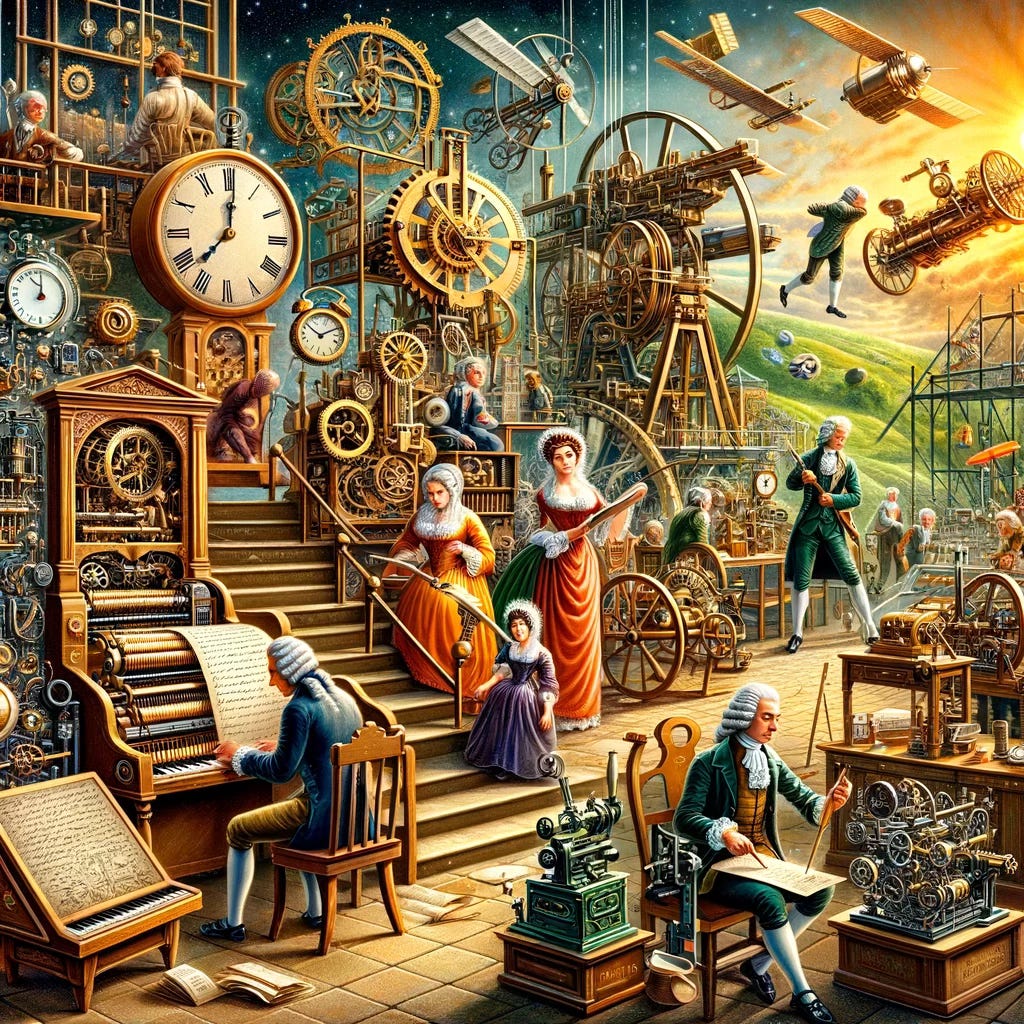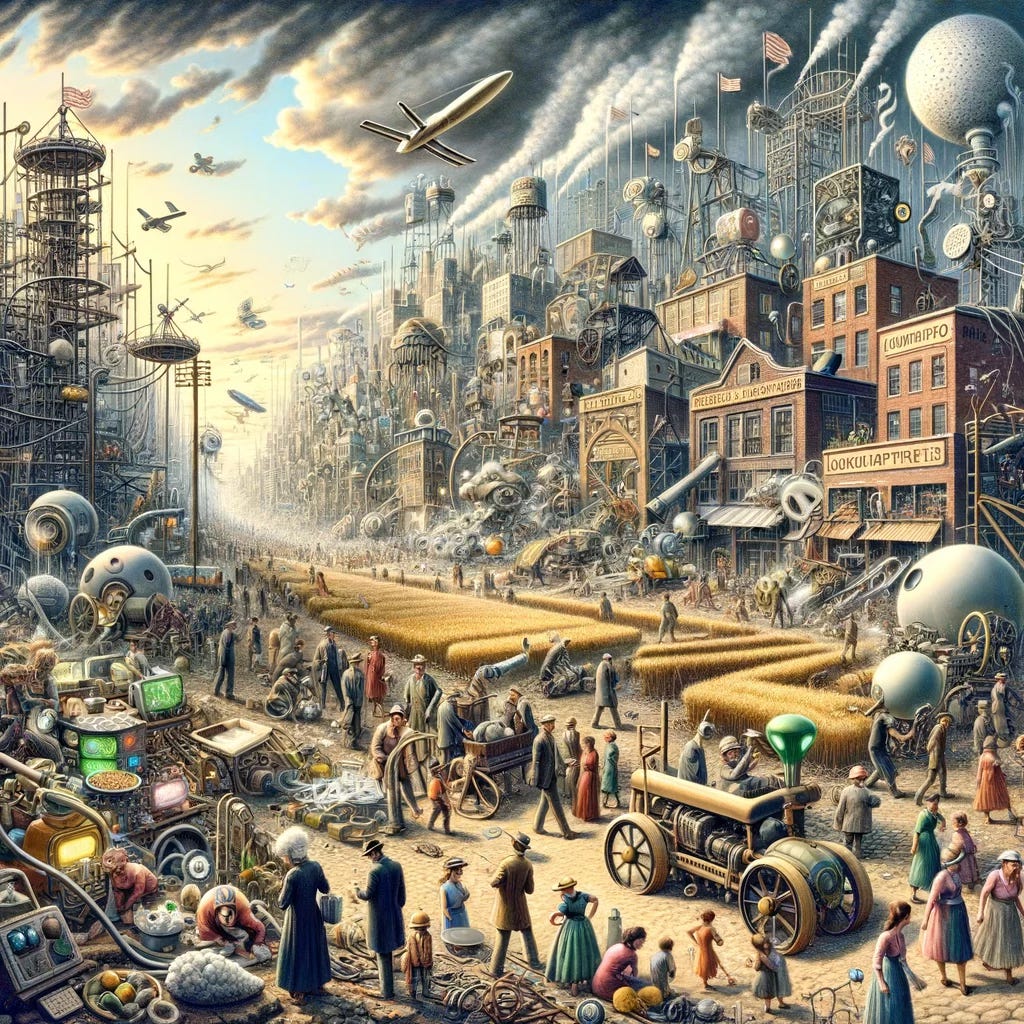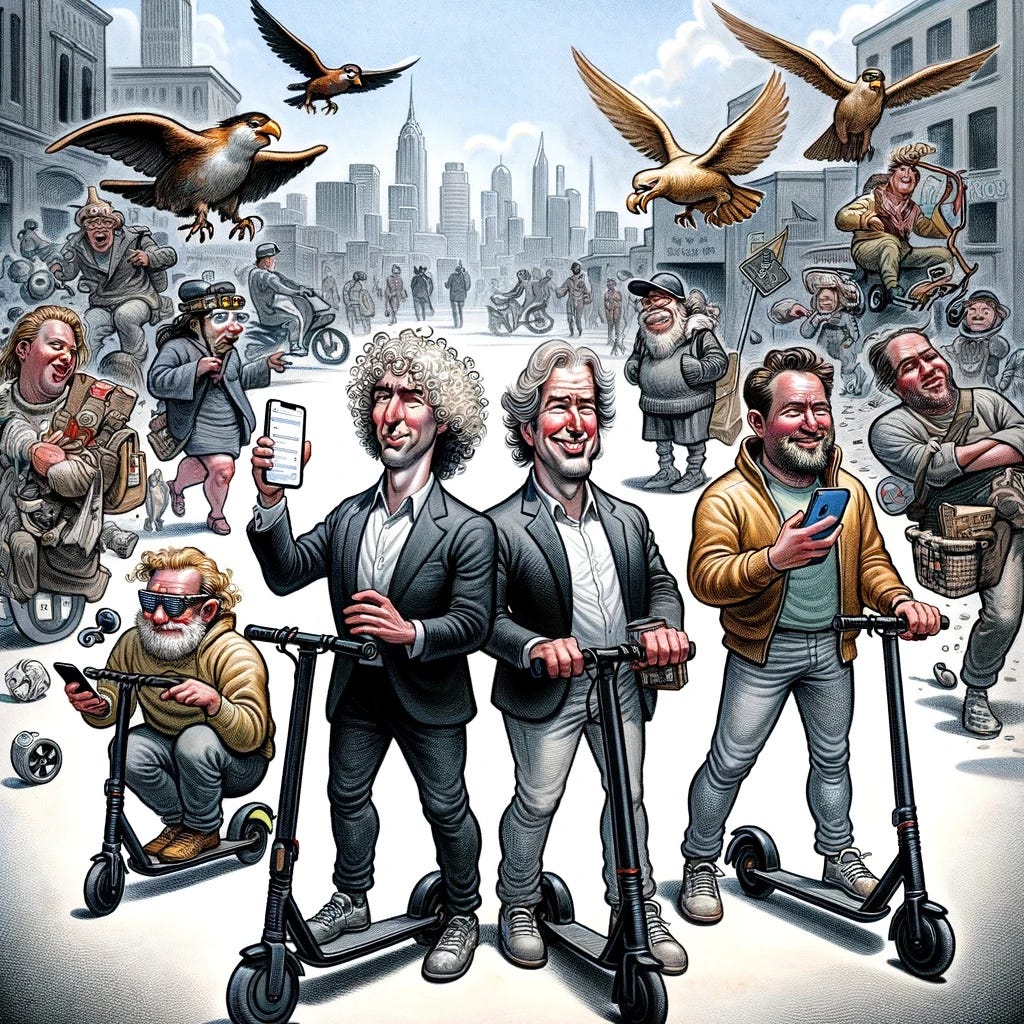Back to the Future: Jonathan Swift Meets Sam Altman
In his satirical classic Gulliver’s Travels (1726), Jonathan Swift anticipates and parodies a mechanical precursor of ChatGPT, which he dubs the “Engine”. Looking backward, Swift’s Engine could just as well have been called the “ChatEngine.”
By the time Swift was writing, the scientific revolution had introduced a range of mechanical inventions and innovations, alongside ambitious projects that sought to apply mechanical principles to understand and control the natural world. Mechanical devices were appearing on the scene everywhere: clocks and watches, the printing press, the steam engine, textile machinery, scientific instruments, and water-powered machinery. And just around the corner was sophisticated automata — mechanical devices designed to mimic human or animal action. The Writer, The Draughtsman, and The Musician could perform tasks like writing, drawing, and playing music.

Swift saw it coming. It was only a matter of time when scientists, inventors and “mechanicians” would turn to mechanical devices to “generate” thought and language.
Lemuel Gulliver, our protagonist, encounters “the Engine” during his visit to Lagado on the island of Bainibarbi. The elaborate mechanical device, measuring twenty feet square and consisting of "slips of wood" and "little pieces of metal," is situated at the Academy of Projectors. Here, "projectors" (inventors, scientists, and thinkers) indulge in experiments and projects that are mostly fanciful and impractical.
The Engine's operation is overseen by a professor, reminiscent of Sam Altman, and is powered by "six-and-thirty lads" who turn iron handles and cranks. This process generates random combinations of words, which are subsequently read and transcribed by other lads serving as scribes.
Gulliver finds "the Engine" intriguing, but also absurd and potentially dangerous.
“Every one knew how laborious the usual method is of attaining to arts and sciences; whereas, by his contrivance, the most ignorant person, at a reasonable charge, and with a little bodily labour, might write books in philosophy, poetry, politics, laws, mathematics, and theology, without the least assistance from genius or study.”
For Swift the Engine creates the illusion of knowledge. It supplants talent and genuine effort with cheap knowledge gained through short cuts. Swift was not opposed to science or the Enlightenment per se. Rather, he was challenging the degradation of honest toil — its replacement by a type of cheating — but also the erosion of practical wisdom, or 'phronesis,' as Aristotle termed it. In its stead, the inhabitants of Lagado are engulfed in a world of superficial thought and action, akin to being nourished by a diet of intellectual junk food. But as technology marches forward, the world is collapsing all around them.
Throughout "Gulliver's Travels," Swift questions the notion of progress, particularly when it comes at the cost of moral or ethical degradation. Along with the Engine, the experiments and innovations devised at the Academy of Projects are intended to improve agriculture, architecture, and other aspects of daily life but often result in disastrous outcomes. The citizens of Lagado plod along in the shadow of gadgets and technology while faced with economic hardship, poor living conditions, failed agricultural projects, dilapidated infrastructure, and increasing social discontent.
Had Gulliver stumbled upon ChatGPT in Silicon Valley instead of encountering "the Engine" at the Academy of Projectors, he might have remarked:
"In a corner of this great hive of absurdity, my eyes were met by a most singular and verbose machine, named ChatGPT. This device, with a tireless and unerring mechanism, churns out discourse on any topic under the sun, mimicking the intellect of a learned man with naught but the spinning of its inner wheels. A prodigy to the credulous, perhaps, but to my view, it was a clear testament to the folly of those who prefer the babble of a mechanical oracle to the genuine, though imperfect, discourse of a thinking human soul."
Through the exaggerated miseries of Lagado's inhabitants, Swift illustrates the dangers of, what we might call today, “runaway entrepreneurialism” which marches ever forward without regard to practical and societal consequences.
Swift, if he were alive today, might ask: “The `Bros of Silicon Valley’ bring you “progress”, but have you thought about at what cost? And is it all Good? As we march headlong into the Age of AI, perhaps it’s time to pull Gulliver’s Travels from our dusty shelves and reread it with fresh eyes.




